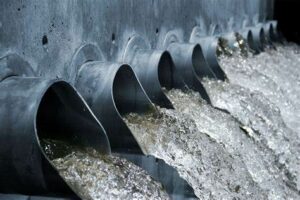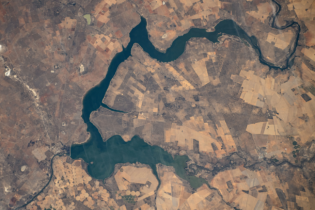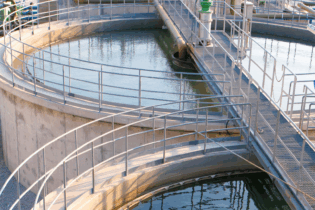Mining operations are integral to various industries, providing essential resources for manufacturing and infrastructure development. However, the extraction of valuable metals from ore involves the extensive use of water, resulting in mining wastewater that is often contaminated with mineral byproducts and solids. The accumulation of these contaminants poses environmental and health risks, necessitating effective wastewater treatment processes for responsible and sustainable mining practices.
The Significance of Wastewater Treatment in Mining
Water is a critical component in mineral processing, playing a key role in extracting metals from ore. Unfortunately, this process introduces mineral contaminants and solids into the water supply, leading to the generation of contaminated mining wastewater. Regulatory standards and community health concerns restrict the direct reuse or release of untreated wastewater into the environment. Therefore, mining operations must establish reliable and consistent methods for treating wastewater to ensure compliance with regulations and maintain operational continuity.Challenges and Consequences of Mining-Influenced Water
The interaction between water and ore during mineral processing gives rise to what is known as mining-influenced water (MIW). MIW encompasses water chemically affected by mining or mineral processing, presenting challenges such as acid mine drainage, processing chemicals pollution, heavy metal contamination, sedimentation, and erosion. Failure to address these issues can result in wastewater that fails to meet regulatory standards, compelling mining operations to implement proper treatment measures.The Importance of Wastewater Treatment
Uncontrolled mining applications pose several water-related challenges, including acid runoff, groundwater contamination, highly saline waste, and aquifer toxification. These challenges are exacerbated in areas with already-stressed water supplies, where mining activities further strain available freshwater resources. To mitigate these environmental and operational concerns, effective wastewater treatment is imperative. Proper treatment not only prevents contamination of external water sources but also allows for the safe reuse of mining wastewater for various purposes, including mining, irrigation, and even drinking water.
Water Treatment Methods for Mining Operations
In the realm of water treatment for mining operations, the primary focus is on treating process water. Essential steps involve the removal of metals, solids, and contaminants from the water, along with restoring the water to optimal pH levels. Achieving these goals requires a combination of chemical treatments and mechanical filtration.Chemical Treatments
- pH Adjusters: Restoring optimal pH levels is crucial for maintaining water quality and facilitating the precipitation of dissolved metals. pH adjusters are employed to raise the pH of the water, promoting the formation of insoluble metal particles.
- Coagulants and Flocculants: These chemicals help agglomerate small metal particles and suspended solids, making them easier to filter out through mechanical means. High-quality flocculants and coagulants, such as those offered by ChemREADY, enhance mining wastewater treatment and reduce overall costs.
- Additional Chemicals: Depending on the specific requirements, additional chemicals like water softeners, ion exchangers, corrosion inhibitors, and algaecides may be used to prepare water for filtration and protect treatment systems.
Mechanical Filtration
Mechanical filtration methods play a crucial role in removing suspended particles and certain organic matter from the water. Common types of equipment include centrifuges, filter presses, and belt presses.- Centrifuges: Utilizing centrifugal forces, hydrocyclones remove solids from water, offering an initial solids removal solution before primary treatment methods. However, they may not be sufficient on their own and are often used in conjunction with other filtration methods.
- Belt Filters: Known for quick setup and shutdown, belt filters are cost-effective solutions for the mechanical dewatering of mining wastewater. They work by dewatering a slurry between two moving belts, producing a clump of solids for easy removal.
- Filter Presses: Considered the gold standard in wastewater treatment, filter presses efficiently remove solids from mining wastewater. Operating with filter plates, they offer higher energy efficiencies compared to alternatives like belt presses or centrifuges. The Matec® filter press from ChemREADY, operating at high pressures, stands out for its effectiveness, requiring fewer flocculants and minimal maintenance.






